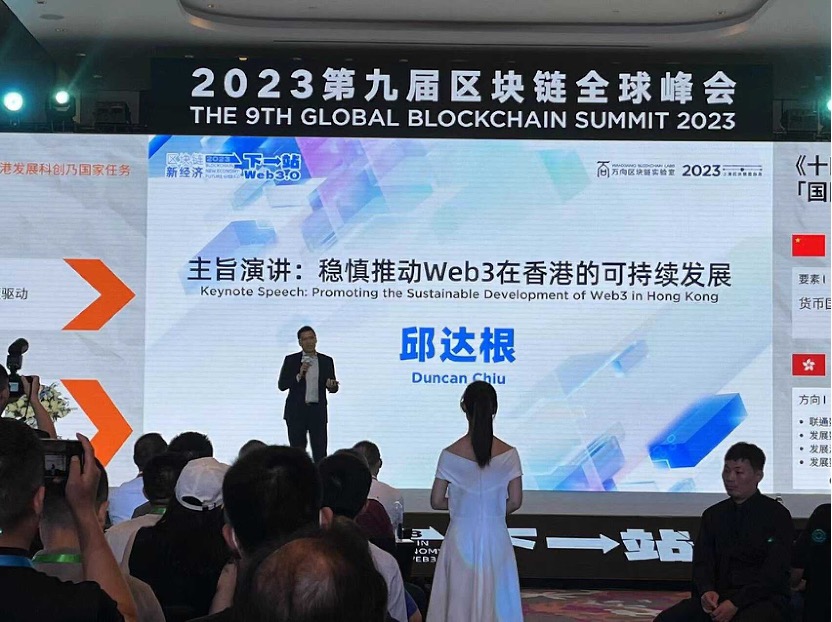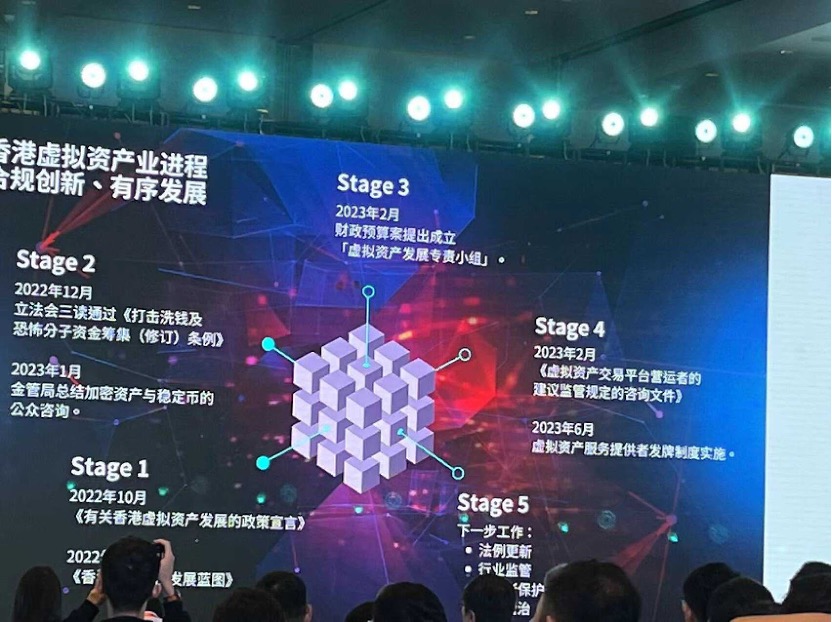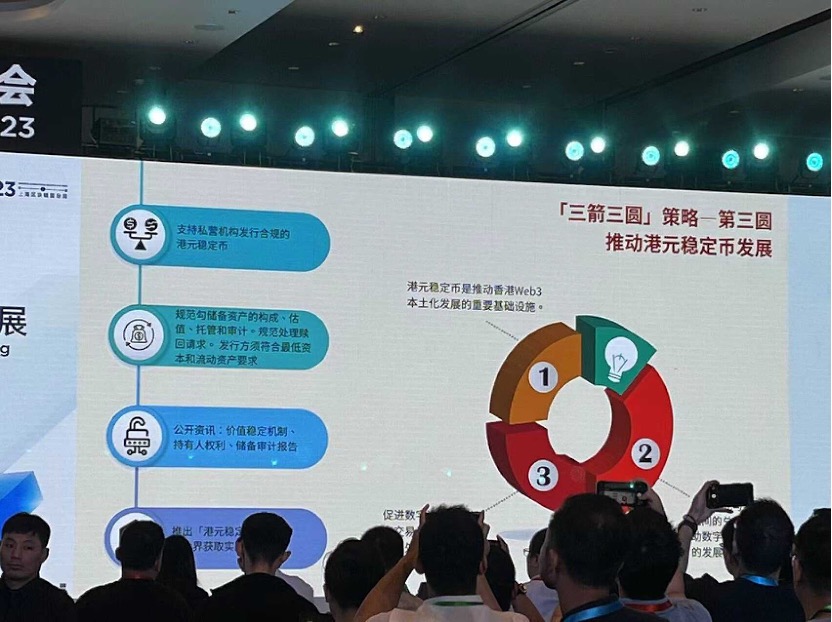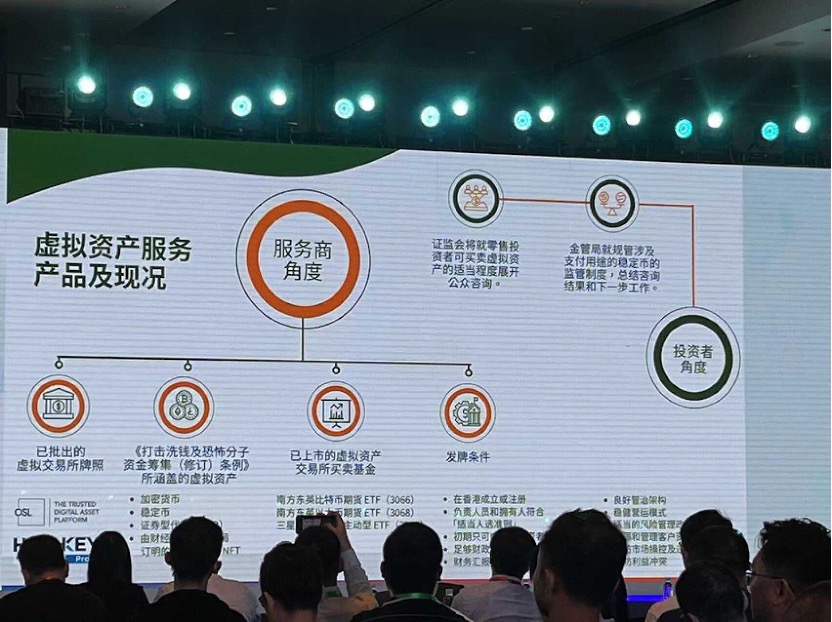Exclusive Interview with Hong Kong Legislative Council Member Qiu Dagen Policy Gap with Singapore is Only One or Two Years, Users Should Only Trust Licensed Exchanges
Exclusive Interview with Hong Kong LegCo Member Qiu Dagen Policy Gap with Singapore is Only 1-2 Years, Trust Licensed ExchangesHong Kong, as an international financial center, has undergone a change in attitude towards Web3 in the past year and has demonstrated its determination to promote the virtual industry. Dennis Kwok is a member of the Legislative Council of Hong Kong (Innovation and Technology Sector) and has been engaged in venture capital-related work and is also a promoter of Web3-friendly policies in Hong Kong. Dennis Kwok has been paying attention to related projects since the early days of virtual currencies. However, at that time, virtual currencies were only a narrow market and were not widely used. This trend has changed in recent years. In addition to virtual currencies, Web3 has emerged in the financial market, personal data, and new directions on the Internet.
After his speech at the 9th Global Blockchain Summit of Wanxiang, Dennis Kwok accepted an interview with LianGuaiNews. He is optimistic about the prospects of virtual currencies and Web3, comparing the current trend of Web3 with the development stage of the Internet in 2003. He believes that although virtual currencies were initially a small field, their development momentum has begun to show with technological progress and the emergence of applications.

Hong Kong’s policies are catching up with Singapore, with only a one or two-year difference
Although Hong Kong has stated that it has turned into a crypto-friendly city, some people have doubts about this. During Token2049, Ethereum co-founder Vitalik Buterin stated in Singapore that crypto projects seeking to operate in Hong Kong should weigh the stability of the government’s crypto-friendliness.
- Exclusive Interview with Qiu Dagen Advocate of the ‘Three Arrows Three Circles’ Initiative Interprets the Latest Policies in the Hong Kong Virtual Asset Industry
- Lawyer interprets CSRC’s warning to JPEX Transition period does not mean no regulation, all exchanges must comply with new regulations.
- New cryptocurrency travel regulations take effect in the UK, comparing the similarities and differences in travel regulations among countries.

Currently, different countries have different policies on cryptocurrencies. “The United States is strengthening regulations, and there is great policy uncertainty; Dubai allows everyone to do it first, but the risks are also greater.” Dennis Kwok said, “Hong Kong and Singapore have similar crypto policies, but there are differences in development direction. Singapore has an advantage in crypto payments, where institutions can trade virtual assets after completing KYC, but trading virtual assets for ordinary citizens is strictly regulated.”
When explaining the differences in policies between Hong Kong and Singapore, Dennis Kwok explained, “In terms of overall planning, Hong Kong is a bit slower than Singapore, but I don’t think there is a big difference in policy direction. Opening bank accounts has also been basically resolved. The timetable for supporting cryptocurrencies in Hong Kong and Singapore is only a one or two-year difference. Overall, everyone knows what Singapore is doing, and if we can catch up from all aspects of legislation, it will only be a one or two-year difference.”
After experiencing the bankruptcy of Three Arrows Capital, the collapse of FTX, and the explosion of LUNA/UST last year, Singapore seems to have also slowed down its development pace in the crypto field, which has given Hong Kong more opportunities to catch up.
Regulatory Standards for Hong Kong Dollar Stablecoins May Be Introduced in June Next Year
In the blockchain industry, stablecoins have become an important asset class. As of September 20th, the market capitalization of stablecoins has exceeded $120 billion. Stablecoins serve as an intermediary currency for us to enter the digital asset field and can also be used in international trade and other fields. In the “Three Arrows and Three Circles” economic and technological development policy proposal submitted by Member of the Legislative Council Paul Tse to the Chief Executive, the third circle of the three circles refers to the issuance of Hong Kong dollar stablecoins to promote the development of Hong Kong’s virtual asset industry.

At the Wanchain Blockchain Week on September 19th, Member of the Legislative Council Paul Tse stated that regulatory standards for Hong Kong dollar stablecoins may be introduced in June next year. There are currently some issues, such as whether interest can be paid to stablecoin holders. Central bank digital currencies may not be the immediate choice, and it may be more appropriate for commercial banks to participate.
Hong Kong dollar stablecoins have their own advantages. First, the issuance of Hong Kong dollars will have US dollar reserves. Second, Hong Kong also has its own foreign exchange reserves, which can be used to support the Hong Kong dollar if the US dollar is unstable. The future may be a situation where multiple stablecoins coexist, and investors also need to diversify their assets.
Member of the Legislative Council Paul Tse suggested that Hong Kong establish a sandbox environment for stablecoins, which can accelerate the development of Hong Kong dollar stablecoins. If stablecoin projects are launched and reviewed after waiting for the legislative process to pass, the entire process will be very long.
In addition to Hong Kong dollar stablecoins, there have also been some US dollar stablecoins issued in Hong Kong, such as FDUSD supported by Binance. Member of the Legislative Council Paul Tse said, “As long as stablecoins are issued in Hong Kong, Hong Kong will definitely manage them, whether it is issuing Hong Kong dollar stablecoins, US dollar stablecoins, or RMB stablecoins, they all need to comply with Hong Kong’s regulatory requirements.” Different stablecoins may be subject to the same regulatory policies because they all require collateral, but the fiat currency used as collateral is different.
After the JPEX Incident, It Is Recommended That the Hong Kong Securities and Futures Commission Speed up License Reviews
If FTX’s collapse has led to strengthened regulation in the United States, then the fraudulent behavior of the Hong Kong exchange JPEX may also serve as a “tight spell” for Hong Kong’s cryptocurrency regulation.

Hong Kong began issuing licenses to virtual asset service providers (VASPs) on June 1st, but local exchanges were given a one-year transition period, allowing virtual asset exchanges that were already operating in Hong Kong before the new regulations took effect to continue operating for another 12 months without a license (until May 31, 2024).
This has provided an opportunity for criminals. Cryptocurrency exchanges that do not comply with regulatory requirements may seek benefits during this final period, and JPEX is a typical example. As of September 18th, according to Sing Tao Daily, the Hong Kong police have received 1,408 reports related to the incident, involving an amount of approximately HKD 1 billion.
Member Qiu Dagen told LianGuaiNews: “In the sales process of JPEX, we have received many complaints. It may be a pyramid scheme or illegal operation. However, according to Hong Kong law, even if its operating methods are questionable and it may be fraud or pyramid scheme, it cannot be banned from operating just because of suspicion without victims.”
With numerous victims reporting to the police, the Hong Kong Securities and Futures Commission and the police have intervened in the investigation and have basically confirmed the fraud of JPEX. Due to the large number of victims, the Chief Executive of the Hong Kong Special Administrative Region, Carrie Lam, has requested the police and the Securities and Futures Commission to meet with the media on the afternoon of September 19 to explain the related events. She emphasized that the licensing system is now to protect investors, and the Securities and Futures Commission will monitor changes in the market.
Regarding how to prevent similar problems from happening in the future, Member Qiu Dagen suggested that users only trust exchanges that have obtained licenses; as for regulatory agencies, he suggested that the Securities and Futures Commission in Hong Kong expedite the review time for licenses. Some exchanges may clearly not meet the requirements, but the Securities and Futures Commission may still allow these exchanges to supplement information multiple times, which greatly extends the review time.
This is also an investor education process. Hong Kong encourages the development of digital assets and the innovation of financial products, rather than asset speculation. If Hong Kong doesn’t do it, it will fall behind, including stablecoins, CBDCs, and virtual currencies.
Member Qiu Dagen has shown optimism about Hong Kong’s development in the field of digital assets. Although facing many challenges such as policy uncertainty and risks of trading platforms, he believes that Hong Kong has a solid foundation and ample opportunities to take the lead in this emerging field.
We will continue to update Blocking; if you have any questions or suggestions, please contact us!
Was this article helpful?
93 out of 132 found this helpful
Related articles
- Hong Kong proposes four innovative policies to promote economic development in the Web3 era.
- EU Cryptocurrency Regulation Entering the Era of Unity Historical Review and Future Outlook
- TaxDAO’s Response to the US Senate Finance Committee on the Issue of Taxation of Digital Assets
- US House Financial Services Committee Regulatory agencies should cooperate with Congress to establish regulatory rules.
- Recognition of the Property Nature of Virtual Currency and Issues Regarding the Disposal of Assets Involved in Cases
- DAC8 enters the stage of opinion review, the EU’s encrypted tax regulation is coming
- Focus on the metaverse and generative AI, four departments issue the Implementation Plan for the New Industry Standardization Pilot Project.






